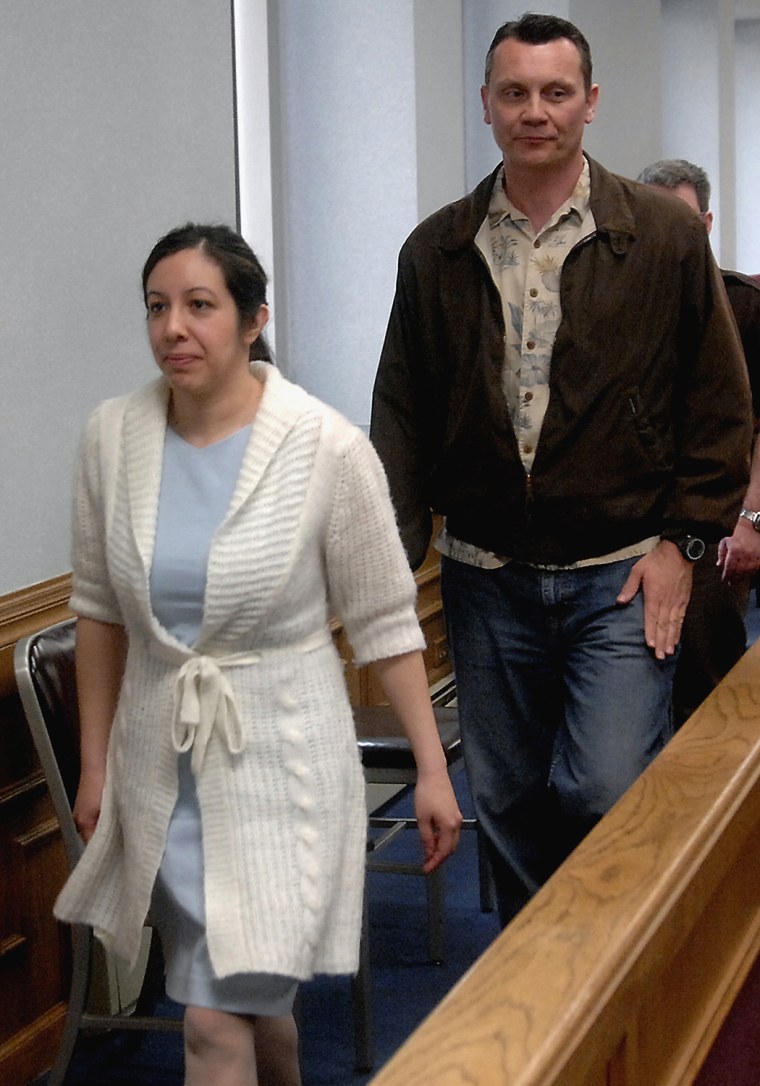A deeply religious Wisconsin couple who prayed over their dying daughter rather than seek medical help were properly convicted of homicide, the state Supreme Court decided Wednesday.
Kara Neumann, 11, of Weston, Wis., died March 23, 2008 — Easter Sunday — of complications of untreated juvenile onset diabetes.
According to the case records, Kara had been showing symptoms of exhaustion and dehydration for more than a week, but her parents, Dale and Leilani Neumann, refused to take her to a pediatrician, and decided to respond to her illness with prayer, not medicine.
A pediatrician testified that Kara's disease was highly treatable and that her chances of survival were high until "well into the day of her death."
The Neumanns don't belong to any particular church, but they identify as Pentecostals, according to factual findings in the court record, none of which the Neumanns disputed. Some Pentecostals — but by no means all — believe that prayer and strong religious belief can cure all illnesses, a tradition that helped give rise to famous "faith healers" like Oral Roberts and Benny Hinn.
As Kara weakened, the Neumanns asked family and friends to pray for her, too. The day before his daughter died, Dale Neumann posted a message on a Christian listserv with the subject line "Help our daughter needs emergency prayer!!!"
"We need agreement in prayer over our youngest daughter, who is very weak and pale at the moment with hardly any strength," the message said.
The next day, Easter Sunday, at least two family friends called 911 on Kara's behalf. Paramedics found no pulse, and attempts to revive Kara at the hospital failed.
Dale Neumann testified that he knew Kara was sick but never thought she might die. In fact, he testified that he thought that Jesus would bring her back from the dead, as he did with Lazarus in the Gospel of John.
Wisconsin is among 17 states that allow religious defenses against felony charges of crimes against children, according to records compiled by Children's Healthcare Is a Legal Duty, a nonprofit activist group that opposes religious exceptions to child health and safety laws.
The Neumanns contended that their convictions were unconstitutional because of the state's law that allows residents to pursue "treatment through prayer." They said the law clashed with the state's reckless homicide law, which calls for intervention when someone is at a point of "substantial risk of death.
Read the full Supreme Court decision (.pdf)
Because Kara's symptoms were hard to identify, they argued, they had no way to know when their prayer decision crossed the line into crime.
But the Supreme Court disagreed in a 6-1 ruling, upholding the Neumanns' sentences, which call for each of them to serve a month in jail every year for six years and 10 years' probation.
"If we were to adopt the parents' reasoning, no prayer-treating parent would know what point is beyond 'a substantial risk of death' until the child actually stopped breathing and died," Chief Justice Shirley Abrahamson wrote.
Steven Miller, Dale Neumann's attorney, criticized Wednesday's decision as having "essentially gutted the faith healing privilege under the child abuse statute."
But he told The Milwaukee Journal-Sentinel that the couple haven't decided whether to take their appeal to the U.S. Supreme Court.
"They lost their child," Miller said. "Obviously, that was an extreme tragedy. They never expected that. To deal with a criminal trial, felony convictions and a very long appeal process, it's been painful."
